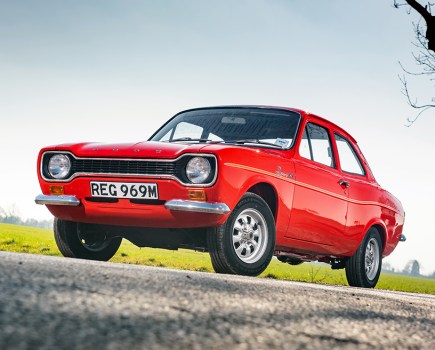A new study has underlined the importance of historic documents and paperwork when selling a classic car.
With so many examples to choose from, a vehicle with a good paper trail can net up to 20 per cent more than an identical car without.
Provenance: A word frequently banded around the antiques world before gaining importance in the classic car market.
The paperwork amassed by a car in its lifetime plays an increasing role in determining the price of historic vehicles, according to vehicle document firm De Bowers Motor File – whose managing director urged owners to hang on to paperwork, no matter how small or insignificant it might seem at the time.
FOR FUTURE REFERENCE
“First and foremost, keep all paperwork, even payment slips and business cards,” Kim explained. “Make copies of legal documents in case of a fire, or other loss. Keep your own notes on the car with regards to any event that the car has experienced. These could even have a legal basis and indeed give a car its unique personality.
“Take pictures at regular intervals; these need to be dated, particularly at events or meetings or even an event in history.”
He added: “Enhance the car’s provenance. Display within your file to the very best effect, letters, photos, press cuttings, auction catalogues, race meeting ephemera, and your own purchase and sale statements, and anything that shows or mentions your car. Film appearances, famous owners – these all contribute to its value.”
Specialist auction house Classics Central concurred with Kim. “A good history file can enhance the resale value of any classic by up to 20 per cent,” asserted its managing director and Classic Car Buyer contributor Justin Lazic.
EUROPE VS NORTH AMERICA
He warned that buying mentalities differed massively between Europe and the USA, however “The former emphasises an ownership culture: Who owned the car, where it’s been, how it was looked after historically. The market has picked up on that and places a premium accordingly.”
Conversely, enthusiasts and collectors in the USA appraise cars very differently: “In the States, it’s all about condition. People buy classics based on what’s in front of them and what they’re getting at the present time.”
Justin argued that there was no centralised equivalent of electronic checks for MoT revealing condition and mileage in the USA because of its State- based registration system.
“There’s no governmental record of owners of history with secondhand cars sold over The Pond. If a car is bought by someone over State lines, the data disappears the second a new plate is issued.
It’s more or less the opposite of what happens here.” Justin continued: “With data from Gov.uk, sellers bolster the history of their vehicles with dealer, workshop and self-made content. Without that pool of information, American owners are less inclined to keep documentation; as a result, buyers don’t expect it. It’s a welcome bonus if it’s there, but it wouldn’t increase the value of a given car if two equally clean vehicles were being weighed up.”
As a result, reams of documentation will help sell a classic in Europe, but not further afield. De Bowers Motor File cited legal precedent in maintaining a clear and professionally organised history file to justify its position, referring to the case of Hubbard vs Middlebridge Scimitar Ltd. in 1990.
Presided over by Mr Justice Otton, the Law Courts of London stated that on the question of a car’s ownership, its continuous history is defined by: ‘A full unbroken and authentic set of documents which identify in a reliable manner who has owned the car, the uses that it has been put to and a description of its service history and any restoration, rebuilding, or reconstruction work that the car has experienced throughout its life since originally leaving the factory.’
The moral of the story then is to keep those old bills, invoices and dealer ephemera like branded number plates and window stickers – in the UK and Europe at least, it’ll help your car stand out from the crowd in the classifieds or at auction.
In closing, Justin felt the age of the ‘sacred service book’ was coming to an end. “I reckon in the future, an increasingly number of decisions to buy will be determined from electronic MoT mileage, advisory and fail checks, rather than a stamped up service history from back in the day. Electronic records are harder to falsify; at the end of the day UK buyers are among the luckiest in the world when it comes to centralised history data. Why not make the most of it?”






